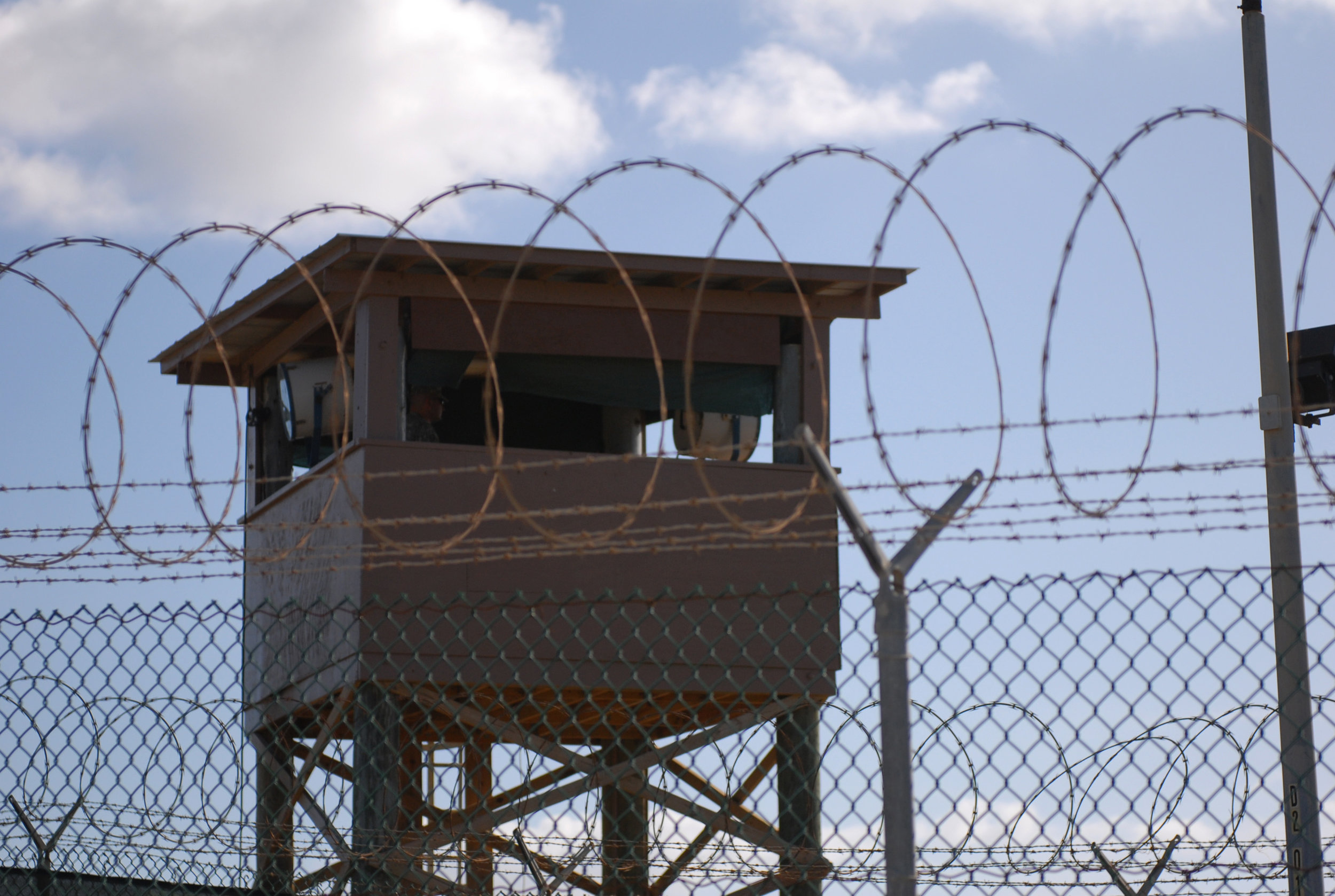Let Them Eat Cake
In the midst of a veritable hornet’s nest of scandals and bureaucratic intrigues that have rocked Washington in recent weeks, one issue has been dragged back into the spotlight: Guantanamo Bay. For several weeks, most of the complex’s detainees have conducted a mass hunger strike. Obviously frustrated with the criminal and political quagmire in which nearly all detainees find themselves, they seem to have decided to try something as desperate as starving themselves to get national and international attention back on Gitmo and the question of why President Obama, who signed an executive order to close Gitmo on day one of his presidency, has been unable to close the facility.
In light of the President’s recent national security speech, in which he reiterated his desire and intention to close Gitmo, it is high-time to reopen the discussion in Congress and elsewhere as to the future of Gitmo. After all, the insanity of the President and Attorney General Holder’s absurdly botched (and fortunately, failed) attempt to try 9/11 mastermind Khalid Sheikh Mohammed in a civilian court in Manhattan has faded from Washington’s memory, and with US military involvement officially over in Iraq and coming to a close in Afghanistan, the question of what to do with the War on Terror’s most serious remaining detainees is a fair and necessary one.
However, we must not allow this recent hunger strike to taint the debate about Gitmo. In all frankness, the debate should not be swayed in any way toward closing the facility due to the hunger strike. If detainees decide they don’t want to eat, then that’s perfectly fine; that is, until Gitmo doctors deem force-feeding medically necessary, at which point it should be conducted with not the slightest hint of remorse, but rather with full knowledge that such procedures are saving their lives.
Why should one pity someone who chooses to not eat? Sure, it is certainly reasonable to feel some degree of pity for the Gitmo detainees, many of whom have been there for quite a few years now, and their inability to seek trials. But the hunger strikes are a completely different issue from the legal quagmire, and indeed they are something for which the participating detainees should be soundly condemned. Using one’s own life as a bargaining chip is not only crude, but also inhumane. As they are being used, the hunger strikes amount to a mass suicide threat; a threat that seeks to take cruel advantage of many onlookers’ (via the global media) natural sense of sympathy, and it only works because the detainees are indeed suffering (although of course it is self-inflicted suffering). If the detainees, through some collective agreement, had decided to attempt some sort of stunt or action to get public and international focus back on the discussion of Gitmo, they could have agreed to something dramatic (but painless) like a silence strike. But no – they chose to put themselves into misery with a hunger strike because they knew that such a ploy would garner them much undue sympathy. As such, the hunger strikers are manipulators.
To this end, the political recognition and consideration of these hunger strikes should simply be the utter absence of any political recognition or consideration. Think of it this way: if civilian inmates across US prisons suddenly began a widespread hunger strike, in the style of Gitmo, coupled with necessary enumerated demands that would have to be met for the strikes to end, the reaction from the public and the media would (at least in general) be one not of pity, but of laughter – laughter because it is foolish for prisoners to attempt to bargain for anything with their personal health (or indeed, lives) as the stakes. Now laughter is of course in no way due concerning the plight of Gitmo detainees, self-imposed or otherwise (silly, in a way, though the strikes may be, these people are definitely in quite the legal/political pickle), but with regards to the specific issue of the hunger strikes, is it not wrong to allow such a barbaric and manipulative practice as hunger striking to worm its way into a political discussion that will be so critical in determining the precedence for future contingencies against terror? In short, should we not simply ignore their immature scheme?
With regards to Gitmo, the President is certainly right about one thing: it has tarnished the image of the US and strengthened the resolve of Islamic terrorists. After the invasions of Afghanistan and Iraq, holding the current detainees as enemy combatants “awaiting trial” was justifiable to a degree – at least considering that we as a nation were trying to figure out what we could do with them in a time when a second 9/11 seemed all but guaranteed. By all means, we should have the discussion about what we can do to finally put Gitmo detainees on the stand (fair but non-public military tribunals remaining an option) and, if appropriate, behind bars in either domestic or foreign prisons. But we should do these things because we are brave enough to not cower from our enemies as they sit behind bars in Cuba (another country, of all places) because of a quirky legal definition, not because they don’t want to eat. Gitmo has damaged the international perception of the US, and not only because it has questioned our commitment to the rule of law – it has also questioned our courage.


